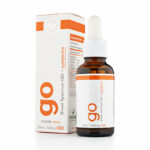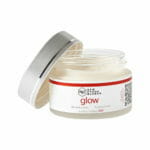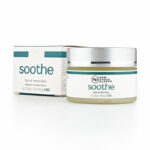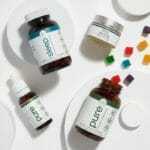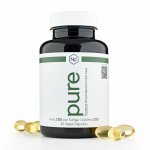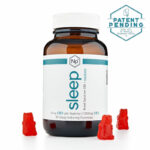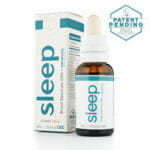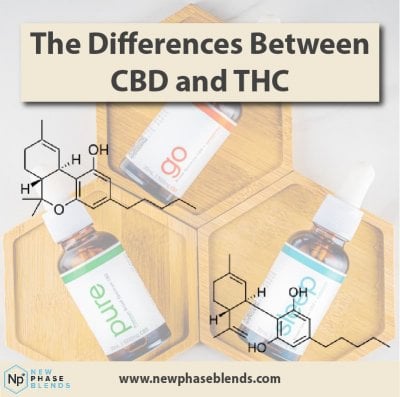The legal use of marijuana and hemp has been rapidly expanding across the country. This expansion has been remarkable, but has left many consumers wondering which products are the best for their needs. The two most commonly derived compounds people discuss revolves around CBD vs THC.
With so much misinformation out there, lets take a look at some of the most common questions I hear about the differences of CBD vs THC.
TL;DR – There are several differences between CBD and THC. One of the most well-known of these differences is that THC will get you high, while CBD won’t. THC is also still labeled as a controlled substance, while CBD is legal.
THC vs CBD – Most Obvious Differences
The most obvious difference between CBD and THC is the plants in which they are found, and the levels in which they exist in those plants.
For starters, CBD and THC are both compounds are called cannabinoids. A cannabinoid is a plant chemical found within the cannabis sativa plant (hemp), and marijuana.
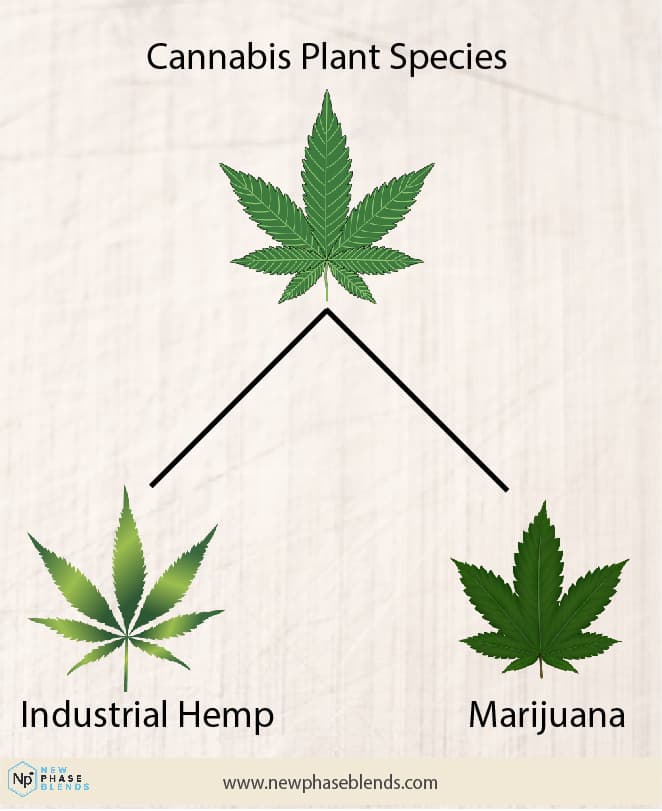
CBD and THC come from plants found within the cannabis plant family. Both cannabinoids are found in hemp (cannabis sativa), too, but legal hemp cannot contain more than 0.3% THC by weight – by federal law. This means CBD products cannot get you high.
This is why hemp is the preferred primary means of CBD extraction. Marijuana can contain any amount of THC and CBD, and is much more tightly regulated.
Cannabis = Hemp and Marijuana
As I just mentioned, both marijuana and industrial hemp make up the cannabis plant family. Many people do not realize this.
The only difference between hemp and marijuana is the THC content within the plants themselves. Man man regulations identify marijuana as a cannabis plant (typically indica, but can also be sativa) with a THC content of over 0.3%. The same regulations identify industrial hemp as specifically cannabis sativa, with a THC content of no more than 0.3%.
For this reason, people who use CBD derived from marijuana will absolutely feel the intoxicating effects of THC.
Related article: CBN vs CBD
The Hemp Plant
If you are looking for a completely non-intoxicating and legal CBD product, please make sure you look for hemp derived CBD. These products are made from the hemp plant, not the marijuana plant.
You can reap the health benefits associated with cannabis, but without feeling the intoxicating effects of THC.
Will CBD and THC Both Get You High?
This is one of the biggest differences between THC vs CBD. THC will get the user high, CBD will not. The psychoactive effects of THC are quite strong, as you all know. However, there are no intoxicating or psychoactive effects when it comes to using hemp derived CBD products.
Why is this?
Related: CBD vs Delta 8 THC For Anxiety
Both CBD and THC interact with the Endocannabinoid System (ECS), but act in very different ways. The ECS comprises various receptors. The psychoactive properties of different cannabinoids, like THC, are due to how they interact with the endocannabinoid system.
This system was discovered in the 1960’s during research revolving around THC and its effects on the body. Neurotransmitters were discovered during this study.
Neurotransmitters are chemicals responsible for relaying messages between cells and have roles in functions like pain relief, immune response, stress, and sleep. The differences of CBD vs THC and their effects on the body are expressed in how the body utilizes each compound.
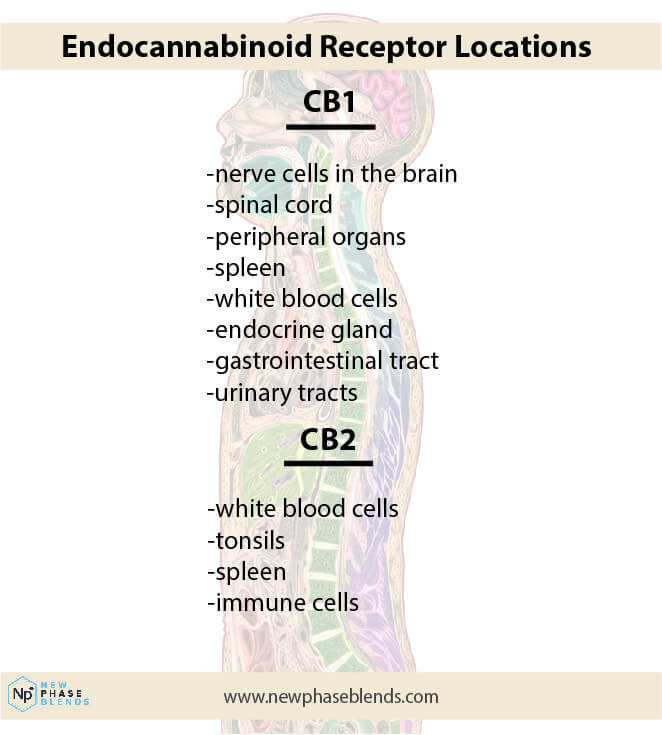
Our endocannabinoid system is basically a network of receptors. These receptors are called cannabinoid receptors, and they are responsible for how our bodies use CBD and THC.
Cannabinoid Receptors Interact With CBD and THC
There are two cannabinoid receptors in the body: CB1 and CB2. These are the sites where cannabinoids enter the ECS. Integrative health studies are trying to figure how best to use these receptors for certain treatments.
The chemical compounds CBD and THC act quite differently, here. THC has a strong binding affinity (it fits well) for the CB1 receptor.
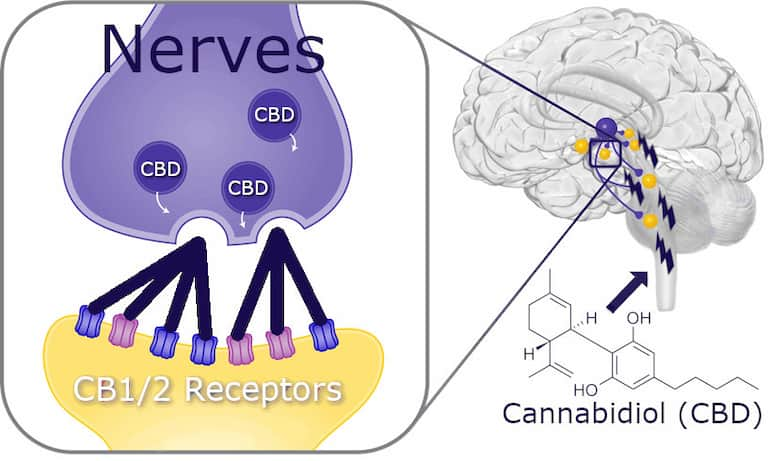
This is why the compound’s psychoactive properties are so strong. This binding allows for a number of effects on your body and mind; some more desirable than others. For instance, while THC can induce feelings of euphoria and stimulate your appetite, it can also cause paranoia and anxiety.
Related: What is CBN?
CBD does not strictly bind with the cannabinoid receptors CB1 or CB2. It is unclear at this time exactly how CBD functions within the ECS; it is thought to modulate the receptors instead.
CBD has a low affinity for binding to the CB receptors. Researchers are still relatively unclear exactly how CBD interacts with the CB receptors, but they do know it doesn’t directly bind like THC does.
Enjoying your reading so far? Sign up to become part of the NPB community and receive a free eBook, 20% off your next order, and access to ton of educational information about cannabinoids like CBD and Delta 8. NPB hosts, arguably, the largest collection of cannabinoid info on the internet. There is no better place to learn than our educational databse.
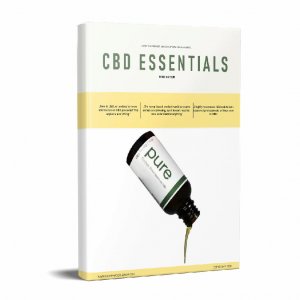
Why Does THC Get People High?
By now, you understand THC is the main psychoactive compound in cannabis plants, and medical marijuana. Cannabis potency is often measured via THC content for this reason.
Your ECS is designed to receive and send messages via endocannabinoids and receptor sites. CB1 receptors are located primarily in the brain and central nervous system.
They help regulate things like pain, inflammation, memory, and appetite. CB2 receptors are located throughout the body and are thought to modulate immune cell functions, like inflammation.
Scientists have identified two primary endocannabinoids:
- anandamide (AEA)
- 2-arachidonoyl-glycerol (2-AG)
THC fits into the CB1 receptor so well that it actually pushes AEA out of the way, sending a flood of ancillary signals to the brain.
These signals then aggravate or mitigate the various functions listed above. The result is often euphoria, or a sense of being high. This is, in a nutshell, why cannabis products or THC products make you feel the way they do.
Related article: CBD for Insomnia
I will get into this a bit later, but because THC makes the user high, it is located on a controlled substances list. This list is filled with substances that are regulated by the Drug Enforcement Agency, and normally require a prescription for use.
Medical marijuana, for example, requires the use of a medical card in any state that marijuana or THC isn’t recreationally legal in.
Is CBD Psychoactive?
Not really. CBD is only psychoactive in that it can alter your moods, or make you feel relaxed. It is not intoxicating in any nature, or psychoactive in the manner that will make you feel high.
Related article: Do CBD Products Smell Like Weed?
There is simply not enough THC in hemp based CBD extract to get the user high. This is because farmers that grow cannabis sativa need to keep the THC content under 0.3% throughout their growing season. This means that a tiny amount of THC can make it into certain CBD products, but it will never be enough to make you feel high.
You see, a chemical is considered psychoactive when it acts primarily on the central nervous system and alters brain function. This alteration can temporarily change things like mood, consciousness or behavior.
Most people associate the term psychoactive to mean it will make you feel high. While this is definitely part of being psychoactive, it’s not the only meaning.
CBD does not have the intoxicating effect of THC and will not get you high or cause withdrawal effects.
This is one of the major differences between CBD and THC.
CBD does cross the blood-brain barrier and directly affects the central nervous system. The result of this is a change in mood and/or perception. This is why CBD is shown to treat anxiety, pain, depression, and seizures. Medical cannabis items often contain a lot of CBD because of this.
Related article: High Strength Vegan CBD Capsules
Not everyone enjoys the intoxicating effects that THC brings them. In fact, if medical cannabis or recreational cannabis wasn’t able to get people high, many, many more people would be using it.
Furthermore, many doctors actually prefer prescribing non-intoxicating substances to their patients. This is because the risk to become addicted, or risk of substance abuse, is almost non-existent in non-psychoactive substances.
CBD Products for Sale by New Phase Blends
Type: CBD oil for energy
CBD: 16mg per serving
Features: Synephrine and CBD blend for energy & focus enhancement
Type: CBD Acne Cream
CBD: 1000mg per 1oz jar
Features: Salicylic acid and CBD blend to stop acne
Type: High strength CBD balm
CBD: 1000mg or 2000mg
Features: Free shipping, money back guarantee
Type: CBD Starter Kit Bundle
Includes: Tincture, Balm, and Gummies
Features: You create your own kit with your custom product choices
Type: Pure CBD Softgel Capsules (Vegan)
CBD: 40mg per Capsule
Features: Free Shipping, Money Back Guarantee
Type: CBD gummies for sleep
CBD: 45mg per gummy
Features: Free Shipping, Money Back Guarantee
Type: CBD Oil For Sleep
CBD: 66mg per serving
Features: Free shipping, money back guarantee
Confused on what to buy? Check out our CBD starter kit. This kit comes with several different forms of CBD products. You can see which type you like best. Maybe you like them all, maybe you prefer a balm, or a CBD tincture. With this kit, there is no guessing. You get it all.
CBD and Inflammatory Responses
Another of the key differences between CBD and THC is cannabidiol’s ability to reduce inflammation. This is extremely important when comparing CBD and THC.
Why is this?
CB 2 receptors have been shown to effect immune function. As mentioned before, CBD does not bind with CB 2 receptors, but modulates them. This modulation can occur in a number of ways:
- It can amplify or decrease the receptors ability to transmit signals
- Act as an agonist – mimicking endocannabinoids and activating receptors
- Act an an antagonist – blocking CB1 or 2 receptors and limiting their activity
Which one of these affects that contributes the most to inflammation reduction is unknown. What is known are the lab results showing the effectiveness of CBD. This is why nonprescription CBD products are preferred by thousands of people to help control their inflammation and pain.
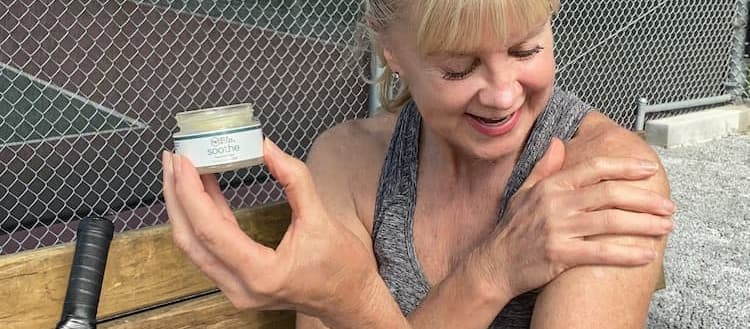
Related article: Inflammatory Effects of CBD
CBD products like CBD balms are extremely popular for this reason. People see, quickly, the benefits that come with applying topical CBD products to the skin.
Once they are on the skin, they are able to penetrate and indirectly stimulate the CB receptors we spoke about earlier.
What’s the Difference in Chemical Structure?
Both THC and CBD have the exact same molecular weight. They also have an almost identical chemical makeup.
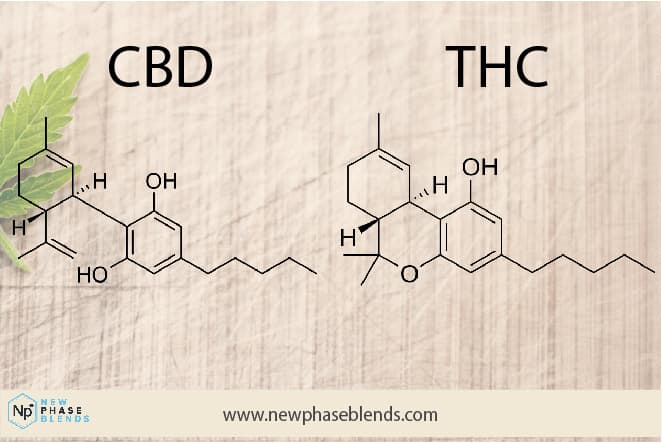
They both consist of 21 carbon, 30 hydrogen, and 2 oxygen atoms. The differences between THC vs CBD lay in the arrangement of these atoms. This is why they produce different effects in the receptor sites. As you can see here, they look very, very similar.
Related article: CBD vs Hemp – Is There a Difference?
The difference between CBD and THC is simply the placement of hydrogen and oxygen atoms.
Are THC and CBD Both Legal?
The cannabis plant has a storied history of being illegal in the US. Another of the key differences between both CBD and THC are their legal status. THC is regulated federally, whereas CBD is not.
Related: Texas CBD Laws
What does this mean though?
For something to fall into the Federal Controlled Substances Act (CSA), it must be specifically denoted and assigned one of five scheduling criteria.
Schedule I is the most restrictive, indicating the drug has no accepted medical use and a high potential for abuse. Marijuana falls into this category.
Schedule V, the least restrictive, defines a drug with accepted medical uses in the United States and a low potential for abuse. Schedule V drugs typically consist of preparations containing limited quantities of certain narcotics.
If you examine the CSA, the word “cannabidiol” or “CBD” is nowhere to be found. This does not mean CBD cannot be regulated, however. If it is derived from marijuana, something called the “source rule” is applicable.
This would make any particular CBD product regulated since it came from a controlled substance (marijuana, in this case).
With the passing of the Farm Bill of 2018, hemp (cannabis sativa) became legally defined as unique from marijuana so long as it contained less than 0.3% THC by weight. Cannabis related products with less than 0.3% THC are now considered legal for use. This means that people can now get the health benefits of CBD, without worrying about breaking the law.
Hemp based products also became legalized under the same bill. Again, if you choose to buy CBD online, or at a retail location, it must contain a THC content of 0.3% or less to remain a legal substance.
Related article: Is CBD Legal in the United States?
This definition opened cultivation of limited “pilot” programs. The Farm Bill of 2018 took this even further, allowing the transfer of hemp-derived CBD across state lines for commercial or other purposes.
It also puts no restrictions on the sale, transport, or possession of hemp-derived products.
Typically, states where cannabis is legal for recreational or medical purposes, should also allow the purchase of CBD.
As with anything that has a tricky legal standing, check your state’s laws concerning possession of CBD or THC. For more information on this, follow this link (internal link).
The FDA’s Stance on CBD and THC
The Food and Drug Administration (FDA) has not authorized CBD products for use as a dietary supplement, or to treat any medical condition.
The only CBD item approved by the FDA is called Epidiolex. The main function of Epidiolex is to aid in seizures. It decreases seizures in children that have certain seizure inducing conditions.
Suggested Uses for CBD and THC
Now that we know some of the differences between THC vs CBD, lets get into applications.
CBD and THC have many overlapping medical benefits.
However, since CBD does not cause the euphoric “high” of THC, many people may prefer it since it lacks this side effect. Below is a list of symptoms commonly treated with either THC, or CBD.
CBD
- inflammation
- arthritis
- chronic pain
- psychosis
- depression
- anxiety
THC
- Alzheimer’s disease
- cancer
- Crohn’s disease
- lack of appetite
- epilepsy
- glaucoma
- muscle spasms
- nausea
This is by no means a complete list, new research is being done everyday into new applications. Also worth noting, non-prescription products often have inaccurate dosing amounts on their labels.
When purchasing a CBD or THC product, ALWAYS look for a scannable QR code on the packaging.
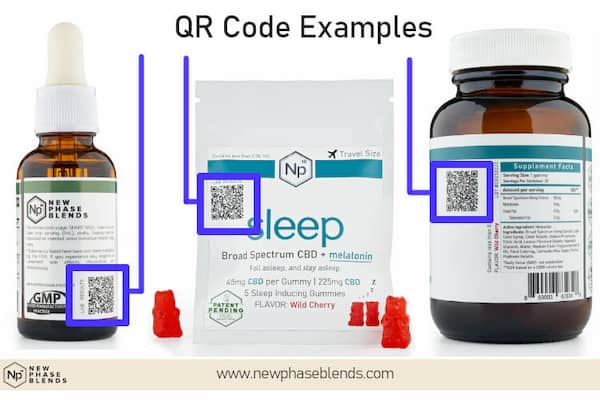
All reputable CBD organizations will have these codes on their CBD oil products. They are scannable via any cell phone, and link to a third party lab result showing the exact cannabinoid content (like THC, CBD, etc…). This lab report is a complete chemical analysis of the product so you know exactly what is going into your body.
Credible products will always provide this.
Related: How Long Does CBD Stay in Your System?
If you do not see any QR code, please make sure you have a good product. Chances are, you don’t. All of New Phase Blends hemp derived CBD products have this code.
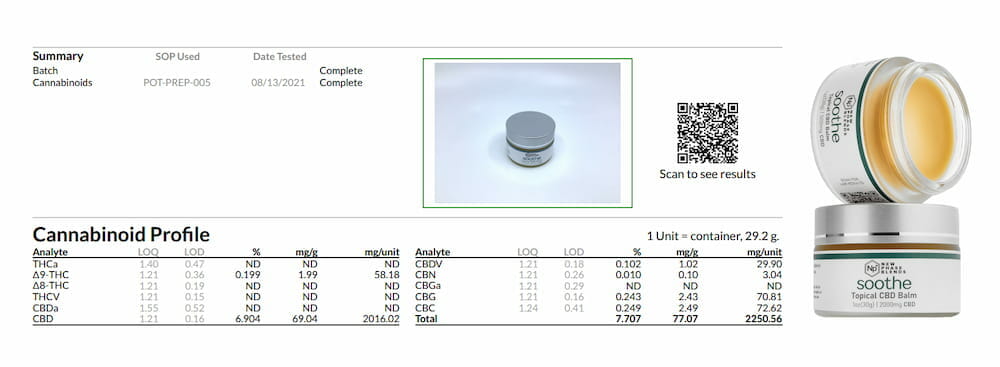
Also, make sure you are buying actual CBD oil, which might also be called hemp CBD oil, or even hemp oil.
DO NOT purchase hemp seed oil thinking that it’s the same thing as CBD oil. It is not. Hemp seed oil contains a lot of healthy fats, but actually contains no cannabinoids like CBD and THC.
What is CBD Isolate?
CBD isolate is isolated CBD cannabinoids that have been removed from the hemp extract, and separated from everything else. It looks like a fine, white powdery substance, and can be used to make CBD products.
This form of CBD used to be very popular when CBD was first legalized, however, this is no longer the case.
Most people want CBD products that contain other cannabinoids in their products, due to the potentially beneficial effects of them. CBD is great, but other cannabinoids are useful to have.
CBD vs THC For Anxiety
Both THC and CBD seem to be popular choices for people to manage their anxiety levels. When it comes to using either CBD or THC for anxiety, keep one thing in mind: THC will make you high, and CBD won’t. Getting high causes some people’s anxiety to get even worse. For this reason, we highly recommend CBD over THC.
Will CBD and THC Show in a Drug Test?
THC will absolutely show in a drug test, while CBD shouldn’t show in a drug test.
I say shouldn’t, because it is possible for poor quality drug tests to show a false positive for THC, even though you only used CBD. As a general rule of thumb, the worse the quality of drug test, the higher the chance for a false positive to occur.
Some people who take drug tests frequently stick to a broad spectrum CBD, or a CBD isolate. These forms of CBD products contain almost zero THC, and are much safer for those worried about drug testing procedures.
Will Topical CBD Balm Show Up in a Drug Test?
A CBD balm with no THC in it will not show up in a drug test, because there will be no THC metabolites in your system. However, if there was even a small amount of THC in your topical item, it is possible for it to show up. Like with oral CBD products, you need to make sure your products are THC free, if this is of concern to you.
Summary – Comparing CBD vs THC
CBD and THC both have profound medical benefits. They’re both considered safe, but keep in mind the possibility of interactions with other drugs you’re taking.
One key takeaway from this article should be that THC and CBD different mainly in the fact that THC will make you feel high (and is therefore a controlled substance), while CBD will not.
They both offer a number a different health benefits, the effects of THC are simply different from the effects of CBD.
The cannabis plant is full of so many potential benefits to our health and wellness. Imagine being able to reap all of the rewards of something like medical marijuana, without the need to get a prescription, and without having to get high when you use it.
Check out this similar post on discussing the differences between CBDv and CBD.
References:
Annual Review of Neuroscience: https://www.ncbi.nlm.nih.gov/
British Journal of Pharmacology: https://www.ncbi.nlm.nih.gov/
Current Pharmaceutical Design: https://www.ncbi.nlm.nih.gov/
Journal of American Chemical Society: https://pubs.acs.org/
National Cancer Institute:
https://www.cancer.gov/
US Department of Justice: https://www.deadiversion.usdoj.gov/
*FDA disclaimer: none of the statements on this webpage have been approved by the FDA. These statements have not been evaluated by the FDA. These products are not intended to diagnose, treat, cure, or prevent any disease. Medical advice should be sought before starting any supplement. If you are pregnant or nursing consult with a doctor. Medical advice should be sought if you have any pre-existing medical conditions. If you take other prescription medications, a doctor’s advice should be sought. Site void where prohibited.



